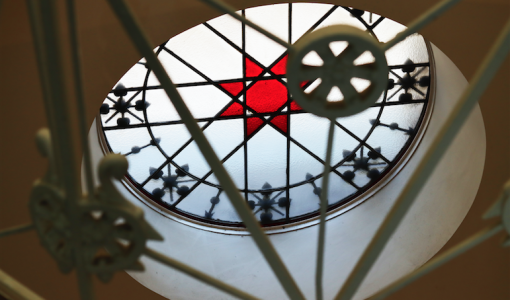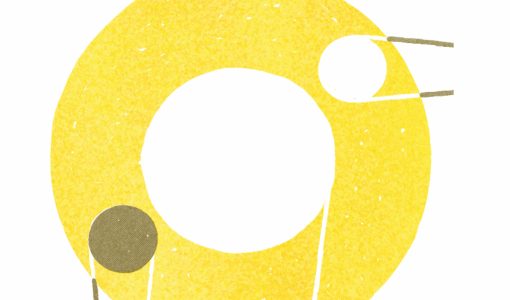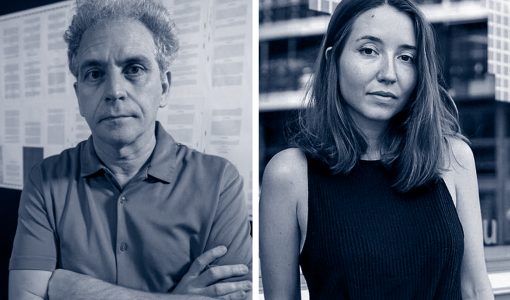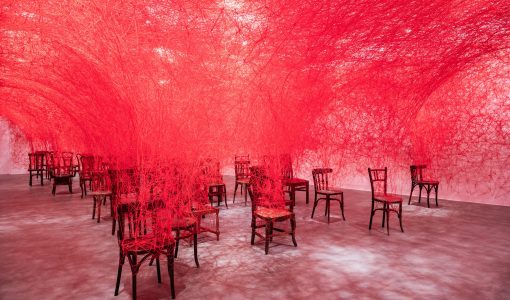
Robert Motherwell
Home
›
Exhibitions
›
Robert Motherwell
Robert Motherwell (Aberdeen, Washington, 1915 – Provincetown, Massachusetts, 1991) studied philosophy and aesthetics at Stanford and Harvard Universities. He arrived in New York in the fall of 1940 and enrolled at Columbia University, studying with Meyer Schapiro, who encouraged him as a painter and introduced him to the European artists then exiled in the United States.
From the Surrealists he learned about psychic automatism, a principle to which he adhered from then on. His use of Cubist techniques, also dates to back to that early period and the collage in particular was to remain with him throughout his life, serving as a counterpoint to his painting.
Until the age of twenty-five Motherwell was an observer. But in 1941 he travelled to Mexico with Roberto Matta, the Chilean Surrealist and the trip marked a turning point in his career. From then on, he definitely turned to painting and his first contacts with Hispanic culture developed into a recurrent feature of his work.
Back in new York again, Motherwell embarked on an intensely active period. He was friendly with a group of his contemporaries in teh American art world: Rothko, Baziotes, Pollock, Gottlieb, De Kooning, many of whom exhibited in Peggy Guggengeim’s exciting gallery. Critic Harold Rosenberg wrote, «They have appropriated modern painting not to a conscious philosophical or social ideal, but to what is basically an individual sensual, psychic and intellectual effort to live actively in the present». This «private revolt» was at the root of American Abstract Expressionism, one of the most significant artistic movements of the second half of the XXth century.
Robert Motherwell occupied a special place in this movement. He was an isolated figure at the center of the circle. His broad training made him essentially a humanist: he had an insatiable thirst for knowledge, a strong empathy with and commitment to the most far-removed realities. He believed that one must respond to what Kandinsky called an «inner need» and this conviction placed him squarely at the heart of the art world of his day. He understood creative action as interaction, not with a particular theme, ideal or school, but with the materials of art. As he said in 1951, «Every intelligent painter carries the whole culture of modern painting in his head. It is his real subject…». His art, like his mind, remained open, even when its expression was at its most intense.
Like many Abstract Expressionists, Motherwell was tremendously successful and the entire movement soon became legendary. The exhibition presented by the Fundació Antoni Tàpies attempts to strip the movement of mythification, taking a new look at the work of the most European of its artists, exploring its content, and tracing its origins and development.
The Motherwell retrospective consists of seventy works selected by curator Dore Asthton in collaboration with Joan Banach of the Dedalus Foundation. It ranges from early Cubist-inspired collages to huge canvases filled with seemingly amorphous vertical black shapes that suggest organic figures and includes small-scale drawings that were the embryos of larger suites of work that share a single theme and were often inspired by literature, history or the artist’s own life. Among these suites are Elegy to the Spanish Republic, based on recollections of the Spanish civil war, and Ulysses, inspired by the work of James Joyce.
This exhibition emphasizes Motherwell’s capacity «to invent and discover», exploring works in which he charted a new territory, a process he sometimes described as «voyaging into the night». It also shows his moments of joy in producing variations on recurrent themes. Motherwell’s emotions ranged wide and his work can be said to mirror his many states of mind, running the gamut from anguish to constructive pleasure. These states of mind are reflected in this exhibition of 70 works, including large paintings on canvas, paintings on paper, collages and drawings.
Dates
13.11.1996 – 12.01.1997
Curator
Dore Ashton.
Artist
Robert Motherwell.
Touring
13/11/1996 – 12/1/1997, Fundació Antoni Tàpies, Barcelona.
5/3/1997 – 5/5/1997, Museo Nacional Centro de Arte Reina Sofía, Madrid.














